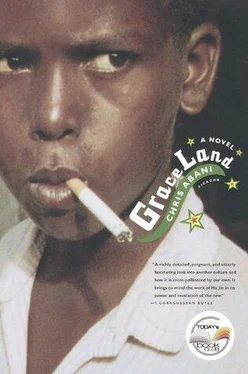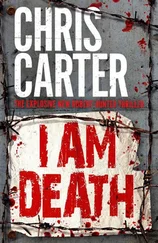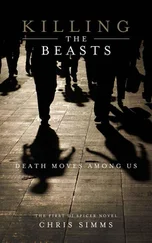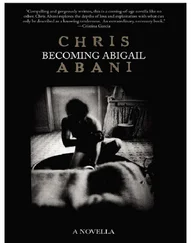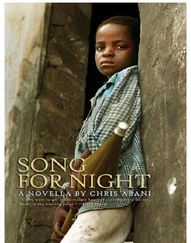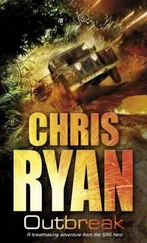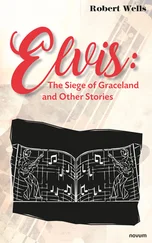“See how your constant distraction cost me money?” Redemption said, sitting down next to Elvis on an upturned bucket. He reached for Elvis’s beer and took a deep drink.
“Ten naira is chicken change to you. I need advice,” Elvis said, wresting the beer bottle back and draining it.
“But talking is thirsty business,” Redemption said.
“Please, I just bought you a bottle of beer. You know I don’t have that kind of money. I am a laborer.”
“Okay, okay. Let me treat you,” Redemption said, handing money to one of the kids hanging around the game. “Go and get me two beers.”
“Three!” Kansas shouted from his game.
“Three,” Redemption repeated to the kid.
“Four,” someone else shouted.
“Your mother!” Redemption shouted back. “So remember what I just said?” he continued, turning back to Elvis.
“Something about thinking with guns from The Wild Bunch.”
Redemption shook his head.
“I said we got to think beyond our guns. See you spend your whole life fighting with your father and no time on making your own life. What will you do when he dies? Fight yourself?”
“What of you?” Elvis asked.
“Me too. I spend my life hustling for small money, staying one step ahead of de police. But I will not do dat all my life. You see, I done read Napoleon Hill and as a thinking man, and with de grace of God, I go be millionaire before I reach thirty.”
“So what is your plan?”
“What’s dat thing they say on dat TV show?”
“What show?”
“ Bassey and Company , by Ken Saro-Wiwa.”
“I don’t know.”
“Dat’s why you are poor. Bassey always says, ‘To be a millionaire, you must think like a millionaire.’”
“So something someone said on a television show is your plan?”
“Dis Elvis, you no get faith. Television is de new oracle. No, I go show you my plan.”
Redemption looked around carefully. Satisfied that everyone’s attention was centered on Kansas’s game, he reached under his shirt and pulled out a pouch attached to his neck by a heavy chain. Unzipping it, he pulled out a crisp green passport.
“See dis?” he said, opening the passport.
“What?’
“Dis,” Redemption said, passing the passport to Elvis. “Visa to States.”
Elvis held the passport and stared at the colored stamp inside it, unable to fathom its importance. Redemption saw the lack of comprehension on his face and explained.
“With dis stamp inside my passport, I can go to United States, act inside film and make millions.”
“I see,” Elvis said, not quite seeing but liking the possibility of being in a film with the real Elvis. “How did you get it? I know the passports are easy to come by, but an American visa? I heard people wait months outside the embassy and don’t even get an appointment.”
Redemption laughed.
“You are asking original area boy how I get de visa? I use connection, de same way I go get movie deal.”
Elvis nodded gravely, though he couldn’t take Redemption seriously. It sounded like another mad scheme; and anyway, from the back issues of the show-biz magazine Entertainment, which he often read at the United States Information Service Library on Victoria Island, he gathered that getting into films was hard enough for American professional actors — so what chance did Redemption stand? Still, Elvis said nothing. He had been using the USIS Library for about a year, having found out about it from a flyer he saw at the local library, which had so few books he had to pace his borrowing so as not to finish them all too quickly. Apart from the endless old tomes on chemistry, physics, electronics and philosophy, the local library had an anthropology section that only had books with the word “Bantu” in their titles — like Bantu Philosophy and Bantu Worldviews. Something about the word “Bantu” bothered him and made him think it was pejorative. Maybe it had something to do with not ever hearing that word used outside of that section in the library. The only other books there were treatises on Russian and Chinese culture and politics. These came either printed in bold glossy colors or in badly bound volumes with the fading print slanted on the page as if set by a drunken printer or as though, tired of the lies, the words were trying to run off the page. So it had been with some relief that he spotted the USIS flyer on the bare cork bulletin board.
He gave the passport back. It seemed to him that everyone wanted to leave for America. Just last month, he overheard his father say Aunt Felicia was leaving for America in a few weeks to meet her husband, who had lived there since the late sixties. He had come back to meet and marry Aunt Felicia in an arranged wedding a year before, although neither Elvis nor his father had gone back to Afikpo for the ceremony. Elvis couldn’t afford to; Afikpo was nearly eight hundred miles away.
He mused over his mixed feelings. His fascination with movies and Elvis Presley aside, he wasn’t really sure he liked America. Now that the people he cared about were going there, he felt more ambivalent than ever.
“Listen, Elvis, stop living like dis, you know? If you are going to do dis dancing thing seriously, den do it. Join proper concert troupe and tour de country. I hear dere is money in dat. But if you just wan’ to annoy your father, den you are wasting your life.”
Elvis looked hard at the floor while Redemption spoke. He had thought about the dance troupe route, especially when he saw a good troupe featured on television. But he was afraid that he wasn’t good enough. There was a positive side to not trying at something: you could always pretend that your life would have been different if you had.
“On de oder hand, if you want to make more money for less work, let me hook you up,” Redemption continued.
“What makes you think I am doing this to annoy my father?”
“I don’t. Listen, I wan’ go beat dese amateurs, tomorrow is rent day.”
He then got up and went to rejoin the game of checkers, and as Elvis left, he heard Redemption raising the stakes.
Pensive on the bus ride home, Elvis did not pay too much attention to the cars that in spite of their speed wove between each other like the careful threads of a tapestry. The motorways were the only means of getting across the series of towns that made up Lagos. Intent on reaching their own destinations, pedestrians dodged between the speeding vehicles as they crossed the wide motorways. It was dangerous, and every day at least ten people were killed trying to cross the road. If they didn’t die when the first car hit them, subsequent cars finished the job. The curious thing, though, was that there were hundreds of overhead pedestrian bridges, but people ignored them. Some even walked up to the bridges and then crossed underneath them.
Elvis was pulled back to the present as the car in front of the bus hit someone. The heavy wheels of the bus thudded over the inert body, spinning into another lane. Elvis winced and turned to the man next to him.
“We are crazy you know. Did you see that?”
“Uh-huh,” the man grunted.
“Why can’t we cross with the bridges? Why do we gamble with our lives?”
“My friend, life in Lagos is a gamble, crossing or no crossing.”
“But why not even the odds a little? Did you know that they have soldiers standing on the islands in the middle of the roads to stop people from crossing the busy roads instead of using the overhead walkways?’
“Ah, dat’s good,” the man said.
“Yes, but that’s not the point. Why do we need to have soldiers there to tell us it is dangerous to cross the road?”
“I don’t understand.”
“If you cross the road without using the overhead bridges, you increase the chances of being hit by a car. Simple logic, really.”
Читать дальше
